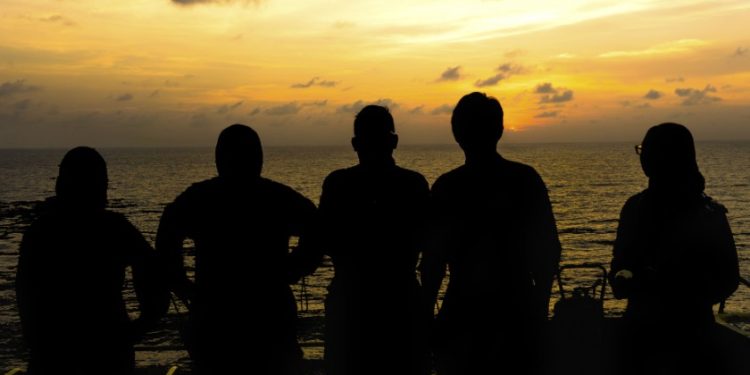The World Maritime University is seeking to find outseafarers’ views on hours of /rest, workload, and ship manning in a new survey.
Seafarers who are currently working on any commercial ship or who have worked on such ships at any time after 1st February 1997 are invited to participate in the survey.
The survey is conducted by the World Maritime University (WMU) in collaboration with the International Federation of Shipmasters’ Associations (IFSMA), the Nautical Institute (NI), the Institute of Marine Engineering, Science and Technology (IMarEST), and the International Seafarers’ Welfare and Assistance Network (ISWAN). The survey is part of research funded by the ITF Seafarers’ Trust.
At the conclusion of this survey, WMU will work with the maritime community to consider improvements.
This survey should take no more than 20 minutes to complete and the information will be kept strictly confidential.
The deadline for the survey is 31stDecember 2022.
Recently, the 4th meeting (Part II) of the ILO’s Special Tripartite Committee (STC) for the Maritime Labour Convention, 2006 (MLC, 2006) took place, adopting amendments to the Code of the MLC, 2006:
#1 Recruitment and placement
Obligations to inform a seafarer of their rights during the engagement process in respect to failure of a recruitment and placement service or shipowner to meet its obligations, has been added.
#2 Repatriation
Obligations regarding repatriation of abandoned seafarers has been strengthened. Port States, flag States and labour-supplying countries shall cooperate to ensure repatriation of abandoned seafarers in their territory, or on a ship flying their flag.
#3 Accommodation and recreational facilities
Appropriate facilities, amenities and services shall be provided to seafarers. These services shall now include social connectivity to meet the special needs of seafarers working and living on board ships.
#4 Recreational facilities, mail and ship visit arrangements
Internet connectivity is important to seafarers to facilitate social connectivity also during their time on board ships. If charges to such connectivity applies, they shall be reasonable in amount.
#5 Welfare facilities and services in ports
Members should as far as reasonably practicable, provide seafarers on board ships in their ports and anchorages, with Internet access. Charges, if any, shall be reasonable in amount.
#6 Food and catering
It has been assumed that both food and drinking water shall be provided free of charge to seafarers while they are on board. However, the standard only specify food to be provided free of charge. This amendment to the code makes it very clear that also drinking water shall be provided free of charge.
#7 Medical care on board ships and ashore
For seafarers in need of immediate medical care, Members shall ensure prompt disembarkation of the seafarer and provision of appropriate treatment. Where a seafarer has died during a ship’s voyage, the Member shall facilitate the repatriation of the body or ashes, as appropriate.
#8 Medical care ashore
The term “in need of immediate medical care” has been established and includes amongst others, serious injury or disease, injury which may lead to disability, broken bones, suicide risk etc.
#9 Medical assistance to other ships and international cooperation
Arrangement for repatriation of the body or ashes of deceased seafarers, as appropriate and as soon as practicable.
#10 Health and safety protection and accident prevention
Supply of appropriately-sized personal protective equipment has been made explicitly required.
#11 Health and safety protection and accident prevention
Deaths of seafarers on board ships shall be reported, on an annual basis, to the Director-General of the ILO for publishing in a global register.
#12 Evidence of financial security related to abandonment
To avoid confusion and challenges during inspection, the evidence of financial security related to abandonment, has been modified. It shall now state the “shipowner” or the “registered owner” if different from the shipowner.
#13 Evidence of financial security related to shipowners’ liability
To avoid confusion and challenges during inspection, the evidence of financial security related to shipowners’ liability, has been modified. It shall now state the “shipowner” or the “registered owner” if different from the shipowner.






